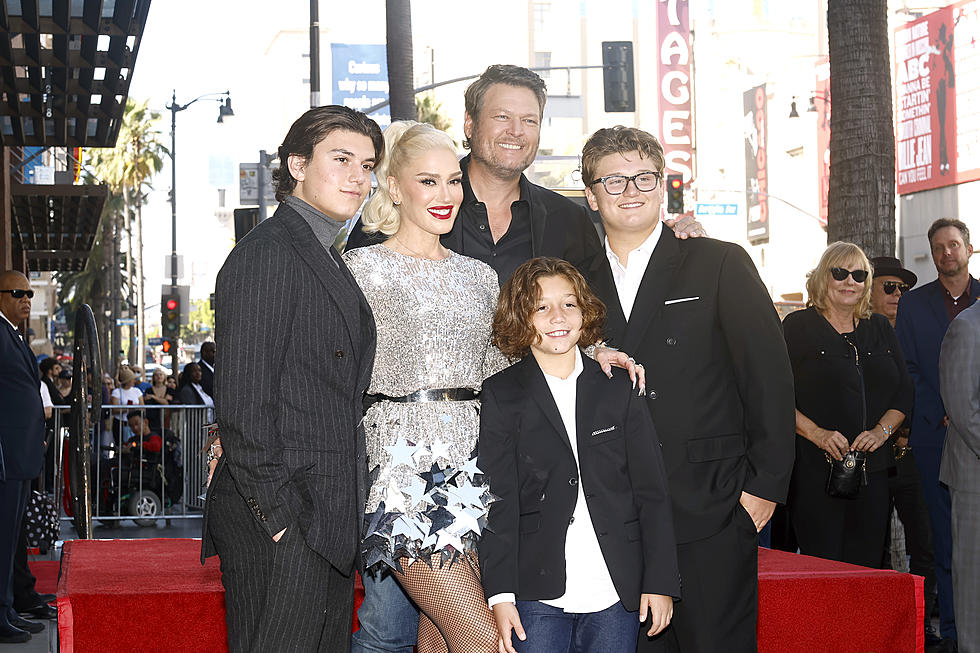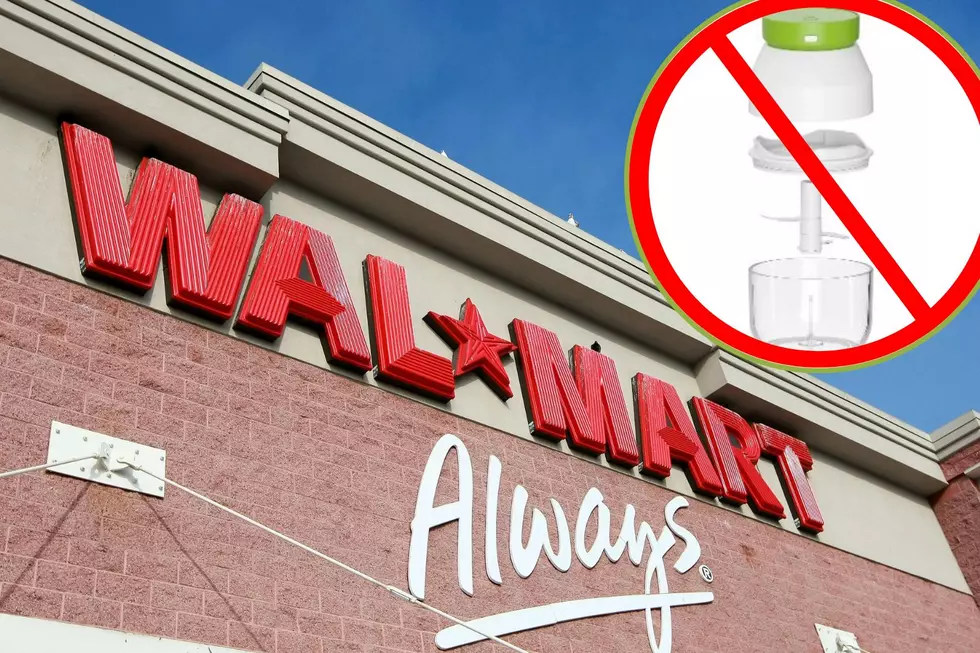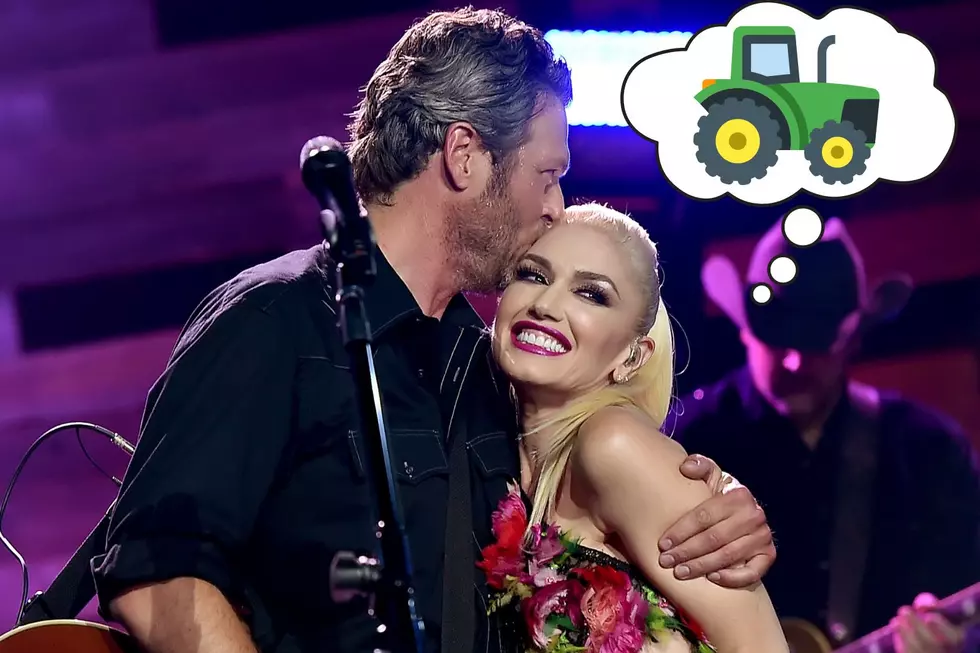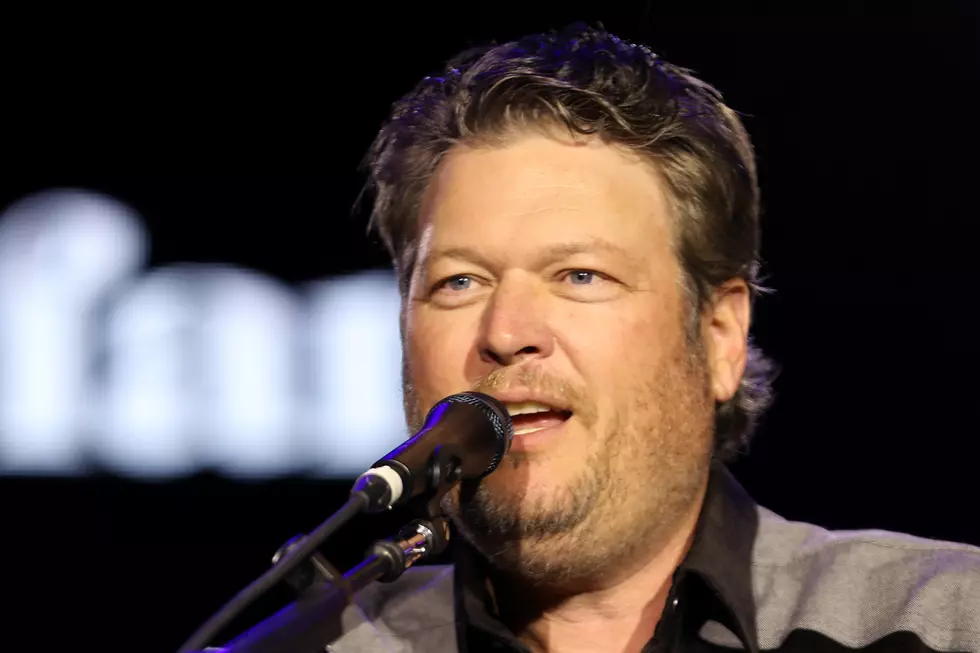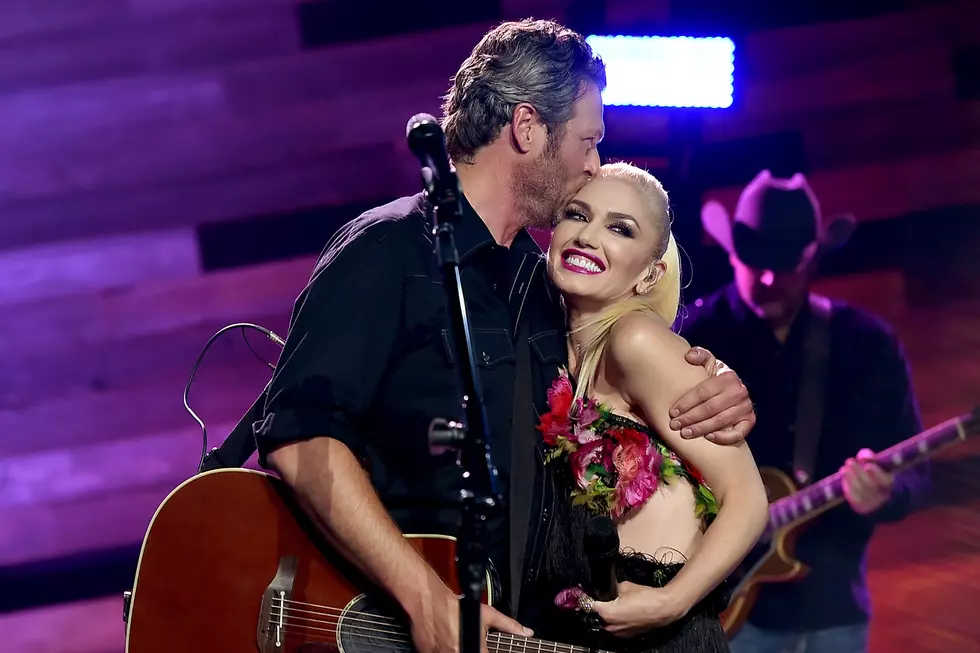
Accidentally Racist? Let’s Be Done With the Confederate Flag in Country Music
UPDATE: The controversy around the use of the Confederate flag in country music is swirling once again, as longtime country-rock and Southern rock group Confederate Railroad have come under fire for both their name and their logo recently. The group's logo depicts a steam train flying two Confederate flags, and on Thursday (July 25) they were fired from an upcoming fair appearance in upstate New York, just weeks after being dropped from another fair in Illinois over concerns that their name and logo are racist. The firings have touched off an intense debate online about their name, the Confederate flag and whether it's a symbol of heritage or hate. Below are our thoughts on the matter from 2015:
The debate over the Confederate flag has re-ignited in the wake of the recent mass shooting in Charleston, S.C.
The shootings took place at Emanuel African Methodist Episcopal Church on Wednesday, June 17. Police arrested 21-year-old Dylann Storm Roof of Lexington, S.C., charging him with nine counts of murder for the shootings, which were reportedly racially motivated. Investigators say Roof attended a Bible study at the church and stayed for nearly an hour before beginning his murderous shooting spree, which left six women and three men dead, including Senator Clementa Pinckney (D – S.C.), who was also a pastor at the church.
Roof reportedly said he was there specifically “to shoot black people.” The New York Times reports that when one victim begged him to stop, he replied, ”I have to do it. You rape our women and you are taking over our country. And you have to go.” Pictures of Roof holding the Confederate flag have subsequently turned up online, along with alleged racist manifestos that might provide clues to the state of mind that led up to the hate crime. The resulting furor has begun a new chapter in the old debate over the flag, which some Southerners see as part of a proud heritage, while many other segments of the culture view it as a divisive symbol of a history of treason, slavery, segregation and racial bias.
The Confederate flag has long been a symbol associated with country music; you can hardly attend any country music-themed event without seeing it on T-shirts, belt buckles, bumper stickers and more. Some country music acts have even displayed it prominently in their marketing materials; legendary country group Alabama have included the Confederate flag on the covers of albums and singles in the past, and according to the Guardian, Gretchen Wilson used to flash it onscreen behind her at her concerts.
Hank Williams Jr. has referenced the flag in a positive way in "The South's Gonna Rattle Again," which includes the line, "You can bet I'll brag on that rebel flag." Blake Shelton's Southern pride-themed hit, "Kiss My Country Ass," begins with the line, “Tearin’ down a dirt road / Rebel flag flying / Coon dog in the back.”
Its use in country music, I think, comes from a place of innocence and ignorance. They don't think of what the symbol means.
Most recently, Trace Adkins drew criticism in 2012 after wearing a Confederate flag earpiece during a televised performance. He apologized for the incident and has not displayed the flag in public since.
"As a proud American I object to oppression of any kind," he said in a statement posted to his website (quote via USA Today). "To me, the battle flag represents remembrance of my Southern lineage — I am a descendant of Confederate soldiers who followed that flag into battle. I advocate for the preservation of America's battlefields and honest conversation about our country's history. To those who view the flag as a symbol of racism, that was not my message and I did not intend offense."
"Pride, not prejudice" is a common position among those who see the flag as a symbol of their heritage, but as PBS points out, the Confederate flag was never actually the official flag of the Confederate States of America — rather, it was the battle flag of Gen. Robert E. Lee’s Army of Northern Virginia. Celebrated country music historian, journalist and author Robert K. Oermann tells Taste of Country that the Confederate flag did not take on its current mantle as a symbol of Southern pride in country music until the 1960s, after the segregationist Dixiecrat party had employed it as a symbol in the 1950s.
"I believe it became a response to the death of segregation," Oermann observes. "That's when these various states began to display the flag, and it started being much more visible. So these country stars, that's the way they grew up. They grew up thinking, 'Oh, it's just a recognition of my ancestors, and I want to honor my ancestors.' Well, you know, I'm a German American, and I don't display the swastika," he says with a laugh.
"I don't think they mean to offend, but they do," he adds. "They also don't see it a symbol of treason, which is what it was, originally. They don't think of it as offensive. They think of it like the apologists would say, 'I'm honoring my heritage.' They've obviously never put themselves in the shoes of someone who's black ... its use in country music, I think, comes from a place of innocence and ignorance. They don't think of what the symbol means. They only think of honoring some ancestors or some heritage, without going any deeper than that. Without thinking, 'This is a symbol that is drenched in blood.'"
Of course, it's unfair and inaccurate to suggest that country music is or has historically been the music of ignorant racists. Though the genre has certainly traditionally been dominated by white performers who are playing for a mostly white audience, legendary performers like Johnny Cash, Willie Nelson and Kris Kristofferson all built iconic careers while openly supporting more liberal social agendas. Tom T. Hall lampooned racism in a 1973 song titled "The Man Who Hated Freckles," and Bobby Braddock called for sweeping social change in the south in his song, "I Believe the South Is Gonna Rise Again," recorded by Tanya Tucker in 1975.
In fact, with the exception of a very small number of passing lyrical references, most country music acts have long since dissociated with the Confederate flag. In an interview as far back as 2002, Charlie Daniels explained his changing views on the symbol. "I don’t have anything against the Confederate flag. Which, I mean, to me, it just designates a part of the country, but some people do," he told Speaking Freely. "It means something else to parts of our society, so I don’t keep a Confederate flag around. I don’t use ‘em on stage or anything ... We did, but it never meant anything to me except the part of the country I was from. I never mean it for, you know, to — I’m not a prejudiced person ... as soon as it started — offended somebody, I just got rid of it, you know?"
In fact, with the exception of a very small number of passing lyrical references, most country music acts have long since dissociated with the Confederate flag.
Alabama no longer employ the symbol in their materials, either, and it's difficult, if not impossible, to name any younger mainstream country act who's been associated with the Confederate flag and its complicated history. In 2013, Brad Paisley inadvertently found himself at the center of a firestorm of controversy when he released "Accidental Racist," a track on which he and rapper LL Cool J collaborated for a look at the attitudes and beliefs on either side of the question of black-white race relations.
The lyrics are framed as a conversation between a white Southerner and a black New Yorker that takes place after Paisley’s character walks into a restaurant wearing a shirt bearing the Confederate flag. “Just a proud rebel son with an ol’ can of worms / Lookin’ like I got a lot to learn,” he sings, to which LL Cool J replies, “If you don’t judge my do-rag, I won’t judge your red flag / If you don’t judge my gold chains, I’ll forget the iron chains.” Though the song was mercilessly derided by many critics as heavy-handed, Paisley was proud of having sparked the conversation.
"This song was meant to generate discussion among the people who listen to my albums," he said. "What I was most worried about is that my fan base would think that I was preaching to them. The last thing I ever want to do is be preachy. But I thought that my fans would get something out of hearing a point of view that they don’t hear very often — a perspective you really don’t hear in country music.”
The fact that it turned some of his fans off only served to prove a point, Paisley added. “Some Southerners got very mad at me: ‘I’m done with you. How dare you apologize for the Confederate flag!’ But the majority of my fans said, ‘We know you, we love you — and we don’t understand the controversy, we don’t get why everyone is so mad.’ Which tells you all you need to know, right there. There is a gulf of understanding that I was trying to address,” he explained.
In the wake of the Charleston massacre, there's been a rapid re-assessment of the Confederate flag nationwide, as both lawmakers and private companies have come out in favor of removing the flag from both public institutions and retail. South Carolina Governor Nikki Haley held a press conference on Monday (June 22) to call for the removal of the flag from the State House, saying in part, “This flag, while an integral part of our past, does not represent the future of our great state,” (quote via CNN).
Big & Rich singer John Rich came down on Haley's side during an appearance on Hannity. “There’s only one flag I care about, ” he stated — the American flag. “And I think that’s the end of the argument right there. I think we can go on ad nauseam about this forever. If something’s bringing pain, or if something is bringing something that somebody uses for hate like that, I mean, I just don’t see the point of continuing to go forward with it.”
Alabama Governor Robert Bentley also ordered the flag removed from the foot of the Confederate memorial on the state Capitol grounds, while in Mississippi — whose state flag incorporates the Confederate flag — Republican Senators Thad Cochran and Roger Wicker have joined House Speaker Philip Gunn in calling for the flag to be replaced by one less divisive.
Many of the candidates on either side in the 2016 presidential race have called for the flag to be removed, while major retailers such as Walmart, Sears, eBay, Amazon, Etsy, Spencer's and many more have decided to remove Confederate flag-themed merchandise from sale. Warner Bros. have even announced that they will no longer license the production of toy replicas of the General Lee, the iconic car from The Dukes of Hazzard that features the flag. It's as if we've reached a cultural tipping point that has brought the majority of Americans together on at least this one issue, putting aside our larger differences for the moment.
Leaving behind a symbol so fraught with baggage is actually good business.
Oermann feels that it's a critical time for country music to dissociate from the iconography of the Confederacy, too. He points out that there is really no downside. "Most kids — and let's face it, that's who consumes music — are a-historical, so they don't see what it means, either, unless they're black kids," he states. "I don't think it would alienate anybody. The vast majority of the country audience — and again, it's out of ignorance and innocence — doesn't see what the symbol means."
And since country music has been expanding well beyond its rural white origins and into the mainstream, with a presence on non-country television programs like Dancing With the Stars, The Voice and American Idol, as well as crossover hits featuring pop and rap artists, leaving behind a symbol so fraught with baggage is actually good business.
"It is a big business. They don't call it show art," Oermann reasons. "I think that marketers, managers and record company people — many of whom are not Southern — would discourage their artists from using it, if the artist even wanted to. Obviously they want to appeal to the broadest possible audience, and that is not a way of doing that. Flying the Confederate flag is not gonna get anybody from Pennsylvania."
He adds, "To use it now, in this climate, you'd have to be purposefully saying something. I don't think you can get away with, as Alabama did, it being an innocent, 'I'm just honoring my ancestors' kind of statement. Symbols do mean something, and I think that people in this climate, right now, today, are hyper-aware of that."
That's why it is time for country music artists, labels, vendors and fans to all stand together in rejecting the anachronistic symbolism of the Confederate flag. This is a historic, watershed moment for American culture, and where someone stands on this issue is going to be one of those legacy-defining things further down the line.
It's the right time for those who love country music the most to take a long, hard look in the mirror and ask ourselves, do we want to continue to be associated with a symbol that so often represents oppression, pain, economic unfairness and worse? Do we want to choose to look like the ignorant, bigoted rednecks that outsiders have so often characterized country music as being, even in an era when those ideals and beliefs no longer represent the vast majority of country music artists or consumers? Or do we want to stand together with our fellow Americans of all stripes across this great land and proudly proclaim, "Country music is for everyone"?
Country Artists Wearing the American Flag
Country Music's Most Political Artists:
More From Taste of Country

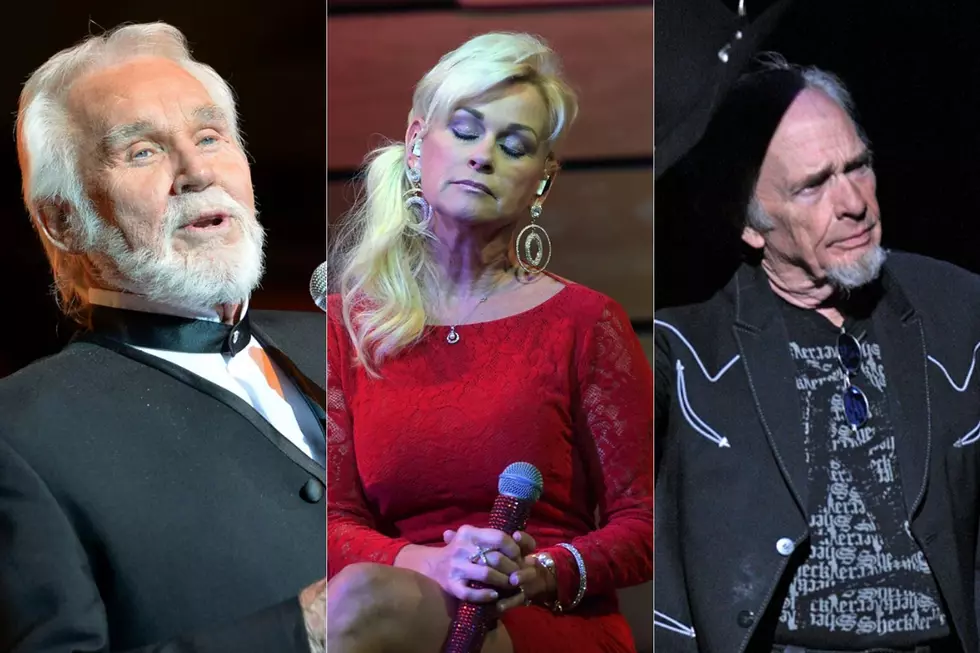
![Hank Williams Jr. Selling His $2.8 Million Tennessee Plantation — See Inside! [Pictures]](http://townsquare.media/site/204/files/2024/04/attachment-hank-williams-jr-house-for-sale.jpg?w=980&q=75)
![10 Times Country Artists Fell While Performing on Stage [Watch]](http://townsquare.media/site/204/files/2024/04/attachment-Ernest-Carly-Pearce-Tim-McGraw.jpg?w=980&q=75)
